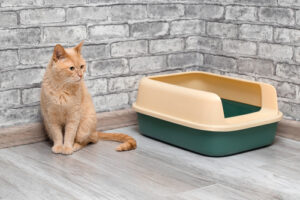The Nose Knows: Unraveling the Mystery of That Fishy Dog Smell
Have you ever noticed a strange fishy odor coming from your beloved canine companion? It’s not uncommon for dogs to have unusual scents, and a fishy smell can be a cause for concern. In this comprehensive guide, we’ll explore the potential reasons behind that fishy dog smell and what you can do to address it.
Normal Dog Odor vs. Fishy Odor
Before delving into the causes of a fishy smell in dogs, it’s essential to understand that dogs have a natural odor, just like humans do. This odor can vary from dog to dog and may change due to factors like breed, diet, and overall health. However, a strong, persistent fishy odor is not a typical doggie scent and may indicate an issue that needs attention.
Potential Causes of a Fishy Dog Smell
Skin Issues and Infections
Skin problems are a common cause of unusual odors in dogs. Conditions such as yeast infections, bacterial infections, or fungal infections can lead to a distinct fishy smell. These infections can occur due to allergies, environmental factors, or underlying health issues.
Anal Gland Problems
Dogs have anal glands that produce a foul-smelling substance used for marking territory. When these glands become impacted or infected, they can emit a strong fishy odor. Anal gland issues are uncomfortable for your dog and require veterinary attention.
Urinary Tract Infections (UTIs)
UTIs can lead to changes in your dog’s urinary odor, which may become fishy or foul. Dogs with UTIs may also exhibit other symptoms like frequent urination, straining, or discomfort while urinating.
Dental Problems
Oral health can significantly impact your dog’s overall odor. Dental issues, such as gum disease or tooth decay, can lead to bad breath that may have a fishy undertone. Regular dental care is crucial for maintaining your dog’s oral health.
Diet and Digestive Concerns
A dog’s diet can influence their body odor. Diets rich in fish or certain types of protein may lead to a fishy smell. Additionally, digestive issues or food allergies can affect the gastrointestinal tract and contribute to unusual odors.
Addressing the Fishy Smell in Your Dog
Consult Your Veterinarian
If you notice a persistent fishy odor emanating from your dog, it’s essential to consult with your veterinarian. They can perform a thorough examination, including skin, anal glands, and oral health checks, to identify the underlying cause.
Treating Skin Infections and Allergies
Skin infections and allergies often respond well to treatment, which may include topical or oral medications, dietary changes, or the use of medicated shampoos. Your veterinarian will determine the best approach based on the diagnosis.
Anal Gland Expression
If anal gland problems are the culprit, your veterinarian can manually express the glands to relieve discomfort and eliminate the fishy odor. They can also provide guidance on managing anal gland issues long-term.
Managing Urinary Tract Infections
Treatment for UTIs typically involves antibiotics to clear the infection. Ensuring your dog has access to clean, fresh water and taking them out for regular bathroom breaks can help prevent future UTIs.
Dental Care
Regular dental care is essential to address dental problems that may contribute to bad breath and a fishy smell. This may include professional cleanings and at-home dental care routines recommended by your veterinarian.
Dietary Adjustments
If your dog’s diet is a factor in the fishy odor, your veterinarian can recommend appropriate dietary changes. High-quality dog foods with balanced ingredients can help improve your dog’s overall health and odor.
Preventing Fishy Odors in Your Dog
Regular Grooming
Regular grooming can help prevent skin issues and keep your dog’s coat clean and healthy. Brushing your dog’s coat and bathing them as needed can help reduce odors.
Maintain Anal Gland Health
To prevent anal gland issues, ensure your dog has a balanced diet with adequate fiber. Some dogs may require regular anal gland expression by a veterinarian or groomer.
Dental Care Routine
Establish a dental care routine for your dog, including brushing their teeth regularly and providing dental chews or toys. Your veterinarian can recommend suitable dental products.
Dietary Consistency
Maintain a consistent and balanced diet for your dog to prevent digestive issues and dietary sensitivities. Avoid sudden dietary changes, and consult with your veterinarian about the best food options for your pet.
Contact Berthoud Animal Hospital for Expert Guidance
If your dog has a persistent fishy odor or any other health-related concerns, please don’t hesitate to contact Berthoud Animal Hospital at (970) 532-2726. Our team of experienced veterinarians is here to provide guidance, conduct thorough examinations, and recommend appropriate solutions to ensure your dog’s well-being. A happy and odor-free dog is our priority!





